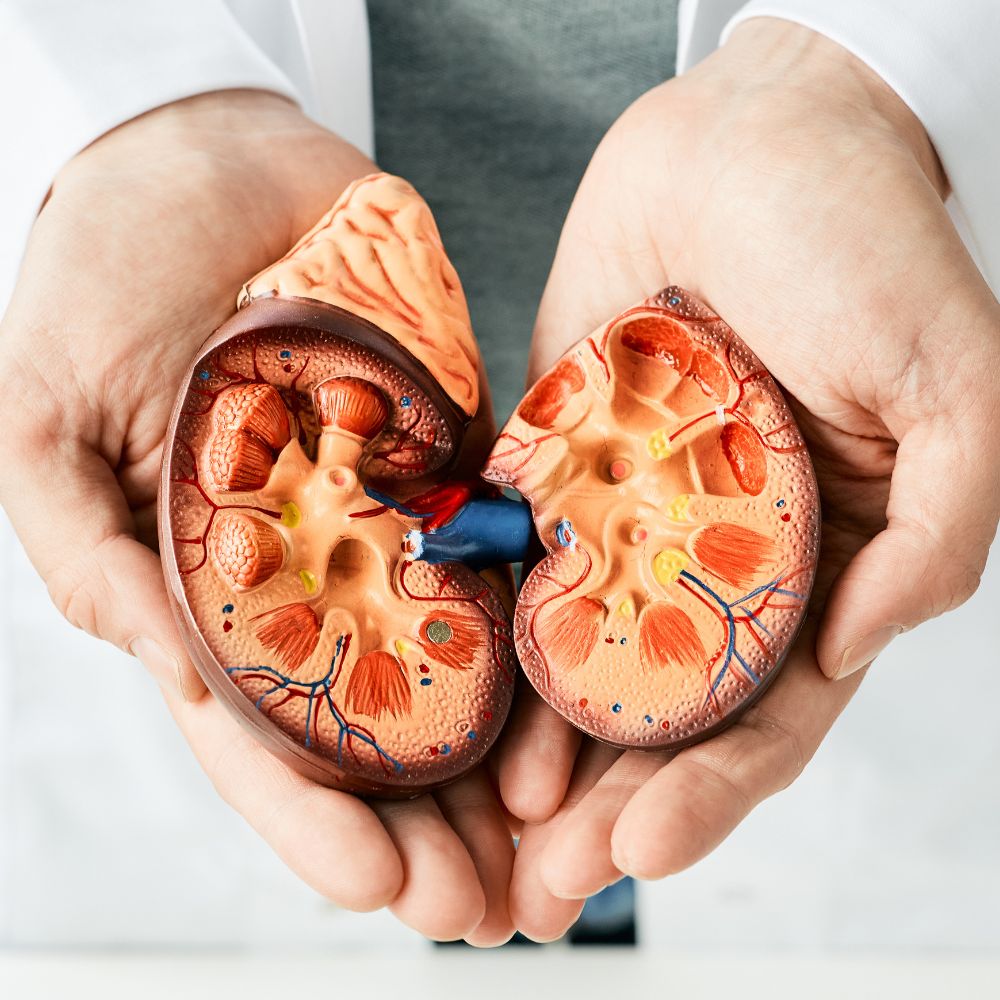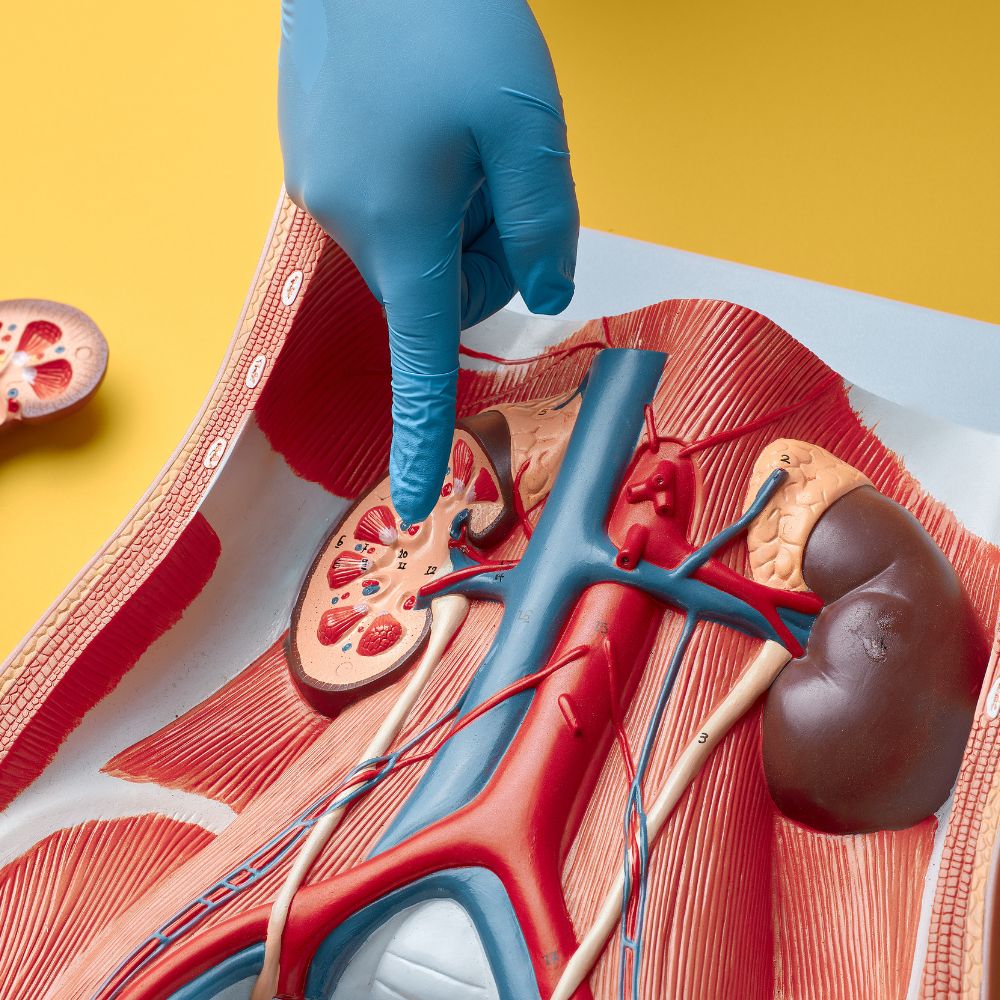
Kidney Cyst
A kidney cyst is a fluid-filled sac that forms in or on the kidneys. In most cases, these cysts are simple, non-cancerous, and cause no symptoms or harm. However, in some situations, cysts can grow large, become painful, or interfere with kidney function. Kidney cysts may occur as a single growth or as part of a genetic condition like polycystic kidney disease (PKD), where multiple cysts develop and can lead to kidney damage over time.
While simple kidney cysts are often harmless and discovered incidentally, monitoring or treatment may be necessary if they grow, become infected, or cause complications.
Signs & Symptoms

Many kidney cysts are asymptomatic and found during routine imaging. However, when symptoms do occur, they may include:
-
Dull or sharp pain in the back or side
-
Pain or discomfort in the upper abdomen
-
Frequent urination or urinary tract infections (UTIs)
-
Blood in the urine (hematuria)
-
High blood pressure (in cases of polycystic kidney disease)
-
A feeling of fullness or bloating
Diagnostic Procedures
Dr. Upal Sengupta uses advanced diagnostic tools and a comprehensive approach to identify and evaluate kidney cysts:
- Ultrasound of the kidneys – A non-invasive first-line imaging test
- CT Scan or MRI – For detailed imaging to assess the size, complexity, and number of cysts
- Urine Analysis – To detect blood, protein, or signs of infection
- Kidney Function Tests (creatinine, eGFR) – To monitor renal performance
- Genetic Testing – In cases of suspected polycystic kidney disease or family history